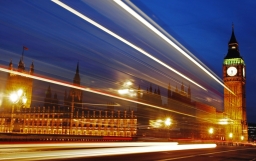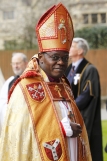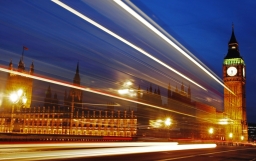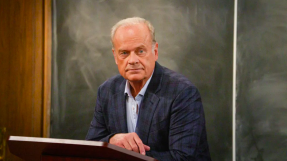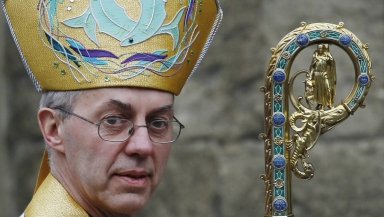
The Church of England today published a call for a "new direction" in politics and encouraged all its members to use their vote in the general election.
The pastoral letter was leaked to the conservative secular press over the weekend, where it was widely interpreted as an attack on the Conservative Party and a bid to end the legacy of the late Margaret Thatcher.
Criticising the growing appetite to "find scapegoats" in political life, the letter, from the Church's bishops, says they want to help churchgoers and others "negotiate these dangerous times." The bishops draw on the Catholic concept of the "common good", a concept also spoken of openly by David Cameron when he became Prime Minister.
The bishops, including the Archbishop of Canterbury Justin Welby and the Bishop of London Richard Chartres, lament the fact that "deep divisions and the gulfs between people and communities" seem to be widening.
They openly state their desire to leave Thatcherism behind, accusing her administration of bringing in competitive individualism, consumption and of fragmenting social solidarity.

Different administrations since Lady Thatcher "have treated the market-orientated and individualistic emphasis of her governments as part of the undisputed political landscape," the bishops write. They say we are now "as distant in time" from her government, elected first in 1979, as she was from Attlee's Labour government of 1945.
Controversially, the bishops call for closer European integration and also make a case for scrapping Trident. "The sheer scale of indiscriminate destructive power represented by nuclear weapons such as Trident was only justifiable, if at all, by appeal to the principle of mutually assured destruction," they write. "Shifts in the global strategic realities mean that the traditional arguments for nuclear deterence need re-examining."
Bishop of Leicester Tim Stevens said the pastoral letter was a call to resist the reduction of politics to "self-interest" as the only clear moral imperative. "In particular we seek to resist politics as an extension of consumerism in which parties tailor their policies to attract tightly defined electoral groups, appealing to sectional interests in pursuit of a narrow slice of swing votes."
Bishop of Norwich Graham James said: "The danger of demonising racial or religious groups is considerable, especially at a time when international terrorism is a destabilising factor among the community of nations. We have to resist this.
"We hope that this will animate Christians to engage in politics, what we want them to do is to engage in the political processes. We are conscious that there are a number of voices around – probably the most famous of which is Russell Brand – telling people that they shouldn't bother with voting and shouldn't bother to exercise their hard-won democratic freedoms," Bishop James added.
"I'm conscious just going around some of our youth groups and speaking to youth groups that that has had a more profound effect than I had anticipated," he said. "And while one may think that bishops of the Church of England don't quite have the sex appeal of Russell Brand we think that we should counter it."
Conservative MP Nadine Dorries was among those who criticised the document.
Speaking on BBC Radio 4's Today programme, she said the Church is "always silent when people are seeking its voice" but "very keen to dive in" when no one is asking for its opinion.
She also accused the bishops of "glaring inaccuracies", such as the claim that unemployment has not risen as fast as expected under the Coalition, when it has actually fallen.
She said: "I would much rather the Church stuck to becoming involved in issues where people are really seeking the Church's voice, such as gender abortion, late term abortion, issues to do with the human tissue and embryology bill."
Referring to the last Labour administration, she added: "Britain endured the longest, deepest recession globally. Where were the bishops' voices when the last Labour government went on a spending frenzy. Where were the warnings then?
"The Bible is very clear about the immorality of leaving our children and our grandchildren with debts to pay. The bishops didn't speak up then. It seems to me there is a very definite left-wing leaning to their message. It seems they only want to get involved when it's opportune for them to do so. They have only just accepted women as equals and brought in women bishops. On their message of equality that is going out today their premise for having authority is very biased."










